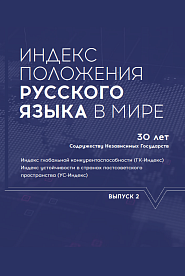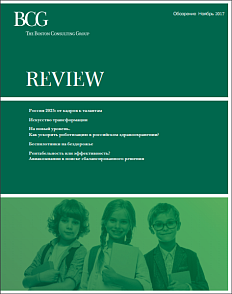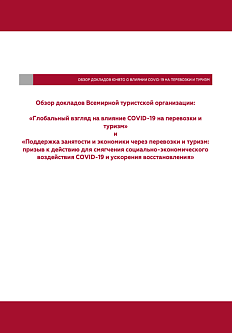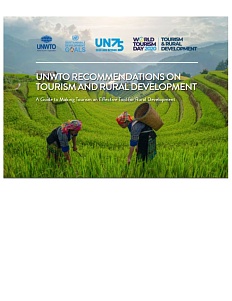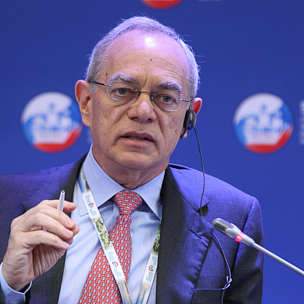A study prepared by the team of the A.S. Pushkin State Institute of the Russian Language, is devoted to determining the level of competitiveness of the Russian language on a global scale and its sustainability in the post-Soviet area.
Analysts of the Roscongress Foundation have identified the main theses of this study, accompanying each of them with a relevant piece of video broadcasts of panel discussions held as part of the business programs of key events held by the Foundation.
The Russian language is in the top five in the global competitiveness index among all languages of the world.
According to the global competitiveness index, the Russian language took 5th place in the list of 12 leading languages of the world with a value of 2.86, surpassing Arabic (2.50), Portuguese (2.38) and German (2.33), while significantly losing to English (16 .67), Spanish (5.26), Chinese (3.70) and French (3.70). The gap between the leader (English) and the closest competitor (Spanish) is more than 3 times.
The positions of the Russian language in the index are low in terms of the number of speakers, the number of Internet users, as well as the number of media. The Russian language strives for a strong position in terms of the number of scientific publications, status in international organizations and the share of sites on the Internet. The amplitude of the graph curve makes it possible to assess the degree of «evenness» of the language, which reflects the level of its competitiveness in various areas of functioning. The Russian language can be attributed to the number of «uneven» languages (the range of positions is from 9 to 2). The most «even» are English (1st position in all parameters) and Spanish (4th position in the first parameter, 3rd position in the rest).

Video: roscongress.org/sessions/eef-2018-rossiya-asean/search/#01:38:00.832
The Russian language has the most stable positions in the Republics of Belarus, Kyrgyzstan and Kazakhstan.
According to the sustainability index in the post-Soviet space, the Russian language is the most stable in the Republic of Belarus (14.29), which leads with a margin of more than 2 times from the Kyrgyz Republic (6.67). The Republic of Kazakhstan closes the top three (6.25).
The lowest index of sustainability in the post-Soviet space, the Russian language has in Lithuania (2.13). The value in Georgia (2.38), Turkmenistan (2.78), Ukraine and Estonia (2.86) approaches this value.
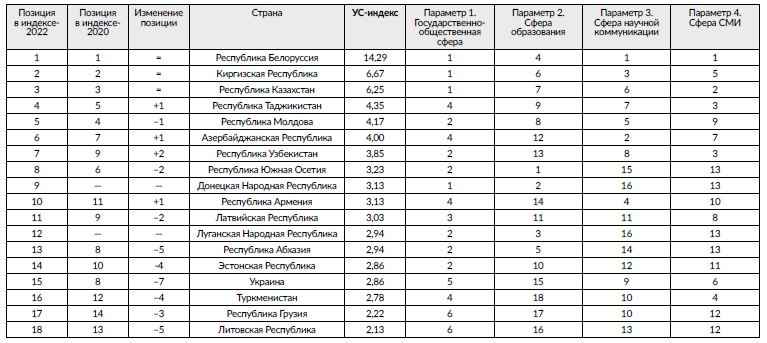
The most «even» in terms of the index parameters is the profile of the Republic of Belarus (positions 1-4-1-1), the most «uneven» in this respect was the profile of Turkmenistan (18th position in the parameter «Russian language in education» 10th position in terms of «Russian language in scientific communication» 4th position in terms of «Russian language in the media»). The profile of the Republic of Azerbaijan also looks rather «uneven» (taking off from 12th position in the parameter «Russian language in the field of education» to 2nd position in the parameter «Russian language in scientific communication») and the Republic of Armenia (14th position in the parameter «Russian language in education», 4th line in the «Russian language in scientific communication» parameter and 10th position in the «Russian language in the media» parameter). Abkhazia, South Ossetia, the DPR and LPR, which occupy high positions in parameter 2, close the lists in parameters 3 and 4 since in foreign databases (including Scopus and ISSN) they do not appear in country directories.
The change in the positions of countries is primarily due to the inclusion of a new parameter («Russian language in the media sphere»), a change in the composition of indicators for other parameters, in some cases, ranking by an additional indicator of countries with the same final indicator, as well as the inclusion of the DPR in the index and LPR. South Ossetia and Abkhazia moved down 3 and 2 lines, respectively, relative to the 2020 index since in the ISSN database, information from which forms the basis for the «Russian language in the media» parameter, they are not included in the country directories, as well as in the Scopus database. However, due to the high values of the indicators of the functioning of the Russian language in the state-public sphere and in education, these states continue to occupy positions in the middle of the table.
The Baltic countries, Turkmenistan, and Georgia rank slightly lower due to the relatively low values of the indicator for the «Russian language in the media» parameter, as well as due to the introduction of ranking by an additional indicator in case of a tie in the final score.
At the same time, due to a more detailed review of scientific publications in Scopus in four areas of research Tajikistan and Uzbekistan are placed at slightly higher positions than in the previous edition of the index.
Ukraine ranks significantly lower, as the performance of the DPR and LPR, including high performance in education, included in Ukraines data in the previous edition, is included in separate rows in this edition.
We also invite you to familiarize yourself with other materials posted in special sections of the Roscongress Information and Analytical System Culture, Education and CIS dedicated to responding to the culture and education.


